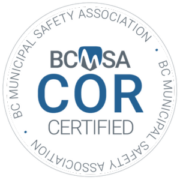Human Connection
The Loneliness Solution
I recently became aware of an advertising campaign by the United Way. They said, “Lonely seniors die sooner – do something about it.” My way of doing something about it is to write a bit about it and provide some direction and hope.
I overheard a conversation recently. One elderly woman was lamenting the recent losses in her life, including the loss of her vision and her driver’s license. She had recently moved into an independent living apartment and was grieving the loss of her own home. She asked another elderly woman if this grief was a shared experience. The second woman replied, “Well, I spent two years all alone in my home with no one to talk to, so moving into a community of people has become my saving grace.”
Loneliness. Psychologists say that it is not a natural condition – it’s a symptom, like a physical pain that signals something is not right. It’s different from depression in that lonely people are seeking social connection while depression craves social isolation.
When my daughter was in elementary school, we had an annual “Grandparents Appreciation Lunch”. The principal asked how many students had grandparents living in their home. One or two hands went up. Next, he asked how many of the grandparents shared a home with their grandparents when they were children. Almost every grandparent’s hand went up. What a difference! In two generations, our culture has changed from an intergenerational family home to many singular generations living independently. Living alone is certainly one of our culture’s visible signals of success, upward mobility, and affluence.
Loneliness can come by surprise. Seniors can spend most of their lives with strong social connections and suddenly find that they are faced with loneliness and the challenge of finding new connections. What can you do about loneliness?
- Tell someone that you are lonely. Loneliness is a curable condition, but there is only one cure – human connection. It will take courage for you to approach someone for help. Pick a safe member of your family or church and share your situation.
- Participate in a community for as long as it is possible – particularly a community that has multiple generations involved. A church is a multi-generational community. Take the initiative to sit on a pew with people from another generation. Initiate a conversation each week and forge a new friendship.
- Spend money to ensure that you can participate. You may have to take a taxi to get to church and that can be expensive. Consider it the cost of a prescription against loneliness.
- Take the initiative with your grandchildren. Do you only see your grandchildren at family dinners? Why not invite each grandchild to spend time with you one-on-one? Grandchildren’s lives are full of interesting new activities, thoughts, and friendships. Their friendship will be a Godsend to you now and in the years to come.
- Get help with your hearing. Loss of hearing is a major reason that people isolate themselves from others. If you can’t understand what others’ are saying, you can’t engage in the conversation. If you already have a hearing aid and are still struggling, take a class in “speech reading (lip, face, context)” or buy an assisted listening device to enhance your ability to hear. The longer you wait to get a hearing aid, the longer it will take your brain to adjust to hearing certain sounds again.
- Explore community living. Your large empty home will never be the answer to your loneliness. People are the answer. Connection is the answer – and there are abundant daily connections with staff and residents in an independent living apartment building. Seniors who live in community find that they eat more wholesome food, are less prone to depression and have more daily conversations and connections.
Are you lonely? Today is the day to do something about it. There are people who care and communities that are setup to increase connections for seniors. Don’t suffer another day.







